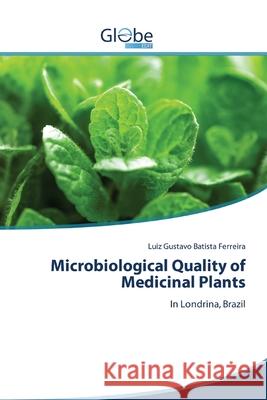Microbiological Quality of Medicinal Plants » książka
Microbiological Quality of Medicinal Plants
ISBN-13: 9786200596871 / Angielski / Miękka / 2020 / 52 str.
The purpose of this study was to evaluate the quality medicinal plant species traded in Londrina, Parana State, Brazil. Plants were chosen on the basis of secretory structures or storage facilities of the active ingredients such as leaves, bark, flowers and fruits. Plant species were chosen to perform the analyzes phytosanitary quality, Chamomile (Chamomilla recutita L. rauscheri), peppermint (Mentha piperita), Anise (Pimpinella anisum 50), hibiscus (Hibiscus sabdariffa L.), cinnamon (Cinnamomum zeylanicum Blume) and lemon balm (Melissa officinalis). The plant materials were purchased by five points or shops in the city. The appearance purchased were transported to the laboratory, located at Londrina State University (UEL). Were identified microorganisms harmful to human health as Aspergillus flavus, Aspergillus niger, Aspergillus ochraceus, Fusarium sp, Nigrospora sp, Penicillium sp, and Rhizopus sp. The medicinal species acquired in trade from Londrina lower microbiological quality of medicinal plant. There is a high incidence of fungi harmful to human health as Aspergillus flavus and Penicillium sp in the medicinal plants collected within five points of marketing.











